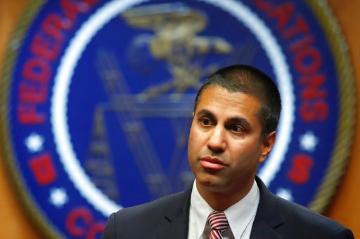
Ahmed Amer is an associate professor of computer engineering at Santa Clara University and an Emerging Issues Fellow at the Markkula Center for Applied Ethics. Views are his own.
My delivery driver showed up with the packages I’d mail-ordered. “Your hair regrowth ointment is here!” he cheerfully declared to my momentarily puzzled and then immediately horrified face.
When I asked him how he knew what was in my package, he explained that he’d looked inside to decide how much extra to charge me.
“But I already pay you for shipping and handling, as does the sender,” I protested, “so why would you need to look inside my packages to decide how much more to bill me?”
He explained that his cousin had opened up a mail order store of his own, and he also sold hair ointment, albeit a different brand I did not want. The driver was charging more for packages containing hair ointment from competing companies in order to help out his cousin, and felt that I should be grateful he’d bothered to deliver the package at all.
“What about the sheriff’s order to stop interfering with our packages?” I demanded.
The driver just smiled, pushed his red trucker cap back smugly, and said, “There’s a new sheriff in town, and he says I can do what I want as long as I tell you about it.” And he was right, for when I complained to the new sheriff, he told me that his predecessor’s order was unlawful because package delivery services were outside the jurisdiction of the Sheriff’s Office. This seemed suspicious, but the sheriff’s duplicity seemed beyond doubt when the local police chief decided to help out. At that point the sheriff changed his story and started claiming the local police chief was interfering with his jurisdiction (which he had claimed he did not have).
This is pretty much where the fight for net neutrality stands.
In December 2017, Federal Communications Commission Chair Ajit Pai reversed net neutrality rules that had compelled internet service providers (i.e., data delivery services) to treat all data equally. He claimed his office lacked the authority to issue such regulations governing internet service providers. Then last week, when Gov. Jerry Brown signed legislation into law that implemented net neutrality in California, the U.S. Justice Department sued, saying that, indeed, the federal government does govern internet service providers, and that states could not pass their own laws to protect their own citizens and businesses.
A common attack against net neutrality rules is to portray them as government interference in the internet. Such arguments grossly misrepresent the intent and purpose of such rules, portraying them as the opposite of what they are. When an internet service provider is prevented from discriminating in its delivery of data based on the content, it is not the government interfering with our internet services, but rather a rational and necessary regulation to curb potential abuses by a delivery service. It is as much a protection of free speech online, and of competitiveness among internet-based businesses, as limiting a delivery driver’s ability to censor and manipulate your mail would be.
That California’s net neutrality law is now being threatened by challenges from the Trump administration, after Pai rolled back net neutrality rules on the pretext that he lacked authority over such regulation, is preposterous. Such an action is as suspect as the corrupt sheriff suddenly deciding to challenge the authority of the police chief. Even if there is a weak (and hopefully hopeless) argument to be made that the federal government has such authority under the commerce clause of the U.S. Constitution, the question will remain why? In what way does such an action serve the public good?
It’s hardly a defense of interstate commerce when the only thing internet service providers would need to do to comply with California’s laws is to act as the unbiased carriers — something an average internet user would assume they already are.
The fight for net neutrality is not over. People should recognize it for what it is: a fight between those who claim that internet service providers handling of data need not be regulated, and who would presumably argue that delivery drivers should be free to open our packages and read our letters in order to decide what they would prefer to do with them, and those who know better.
